-
Home
-
Shop
New -
Explore
-
Support
-
Track Order
Feb 10, 2023
Author:Jackson Watson
No one likes to cuddle their kitty, only to be hit by a wall of a nasty smell. It’s not very pleasant to handle a cat that smells bad, but some people choose to rather live with it than do anything about it. Take a look at some common causes of these odor problems and see if you can figure out what’s causing your cat to stink so badly.
It’s not very pleasant to handle a cat that smells bad. Your feline pal may smell after being outside for a number of reasons:
Foul breath is usually caused by plaque and tartar buildup in your cat's mouth. When tartar builds up in your cat's mouth, it makes a perfect home for bacteria, that contributes to bad breath. Poor quality food is more likely to lead to periodontal disease and bad breath. Another common cause of foul breath is an infection caused by a foreign body in the nose or the back of your cat's throat. If your cat's breath smells consistently abnormal, it could be a symptom of a much larger problem.
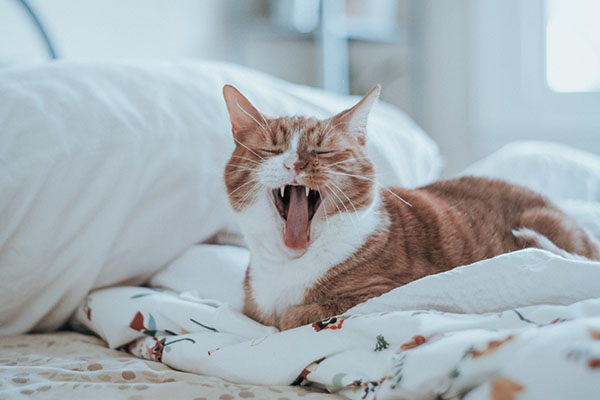
If you have a feline family member, you need to keep an eye on your cat’s skin. Allergies, fungus, hormonal imbalances, and parasites can lead to an overgrowth of yeast or bacteria on the skin and may cause an unpleasant smell. Your cat's discomfort will lead to scratching, patchy fur, and licking which may cause a secondary bacterial infection. If skin infection is left untreated in cats, it can possibly involve deeper parts of the skin.
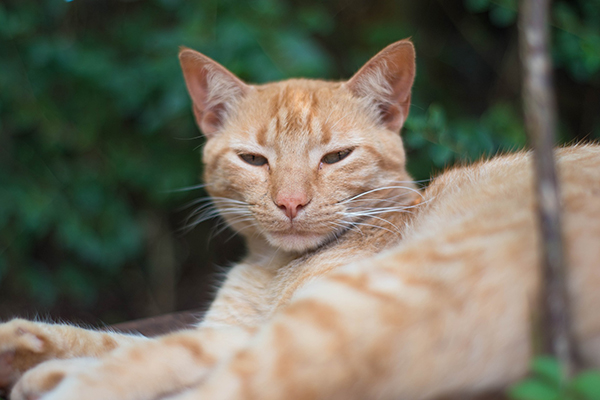
A foul smell in cats could be a sign of an infected wound. Many wounds may stay hidden under the fur and become infected. They can develop an unpleasant odor if left untreated. This may cause a bad-smelling discharge or pus to seep out of the wound. Not only wound very foul-smelling, but they are also very uncomfortable for the kitty. If you're unable to find the source, try running your fingers through your cat's coat.
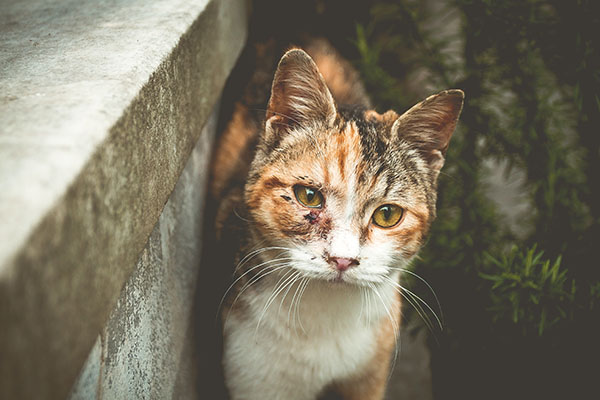
Your cat's ears can get dirty easily and could be the cause of the smell. If your cat's ears smell like yeast, she probably has a yeast infection. Bacterial ear infections are also quite a frequent problem for cats. Whether it’s dead skin cells, excess wax, or bacteria, your cat's ears may need a good cleaning regularly to minimize the risks of smells or infections.
A cat's skin tends to hold bacteria as they go outside. When a kitty spends a lot of time in an unhygienic environment, you can easily tell from her fur. Any dirt, debris, or smells in the air will cling to their fur and you may suddenly notice a foul smell. Cats can also start to smell if the fur isn't cleaned regularly. Fur that is left uncleaned for too long can become irritated and infected, leading to further problems.
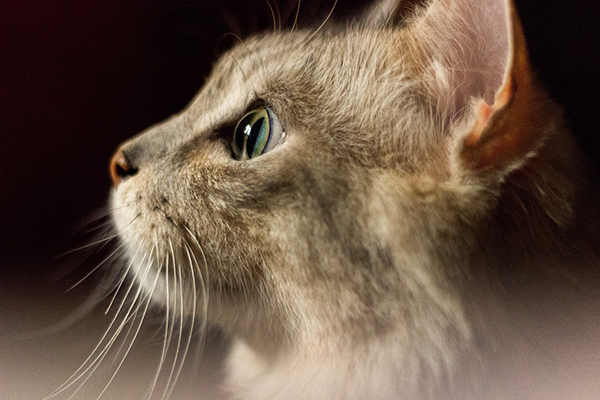
If your cat smells like urine, she could have a urinary problem. If it is a urinary tract infection, you might notice other symptoms like increased thirst and urination, peeing in the house, straining or pain when urinating, and bloody or cloudy urine. There are other causes of a strong urine smell, such as kidney stones, diabetes, or maybe some type of fungal infection.
As your cat ages, you may notice that they have started to smell a bit. Arthritis and old-age health conditions can make it difficult for your cat to properly groom itself. This can cause their fur and skin to smell foul over time. The skin of an older cat is thinner, has reduced blood circulation, is less elastic, and is more prone to infection. The foul smell could be from several things like poor hygiene, dental problems, gas, kidney disease, or ear infections.
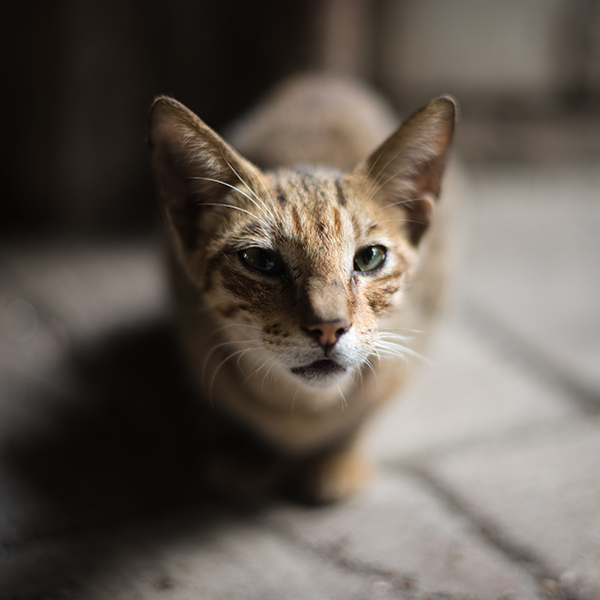
With a little care and attention, you can help keep your cat healthy and smelling fresh. Read on for 5 useful tips for your smelly cat.
If you do notice a smell coming from your cat, all you need to do is give them a thorough bath with warm water and gentle, high-quality cat shampoo. By bathing and grooming regularly their fur is less likely to get to the point where it smells bad. If your cat has any smell in her coat, leave the foam of the shampoo on her coat for at least 10 minutes, to help penetrate the odor. Also, give your cat a good brush once a week to remove any dirt, debris, or dead fur.
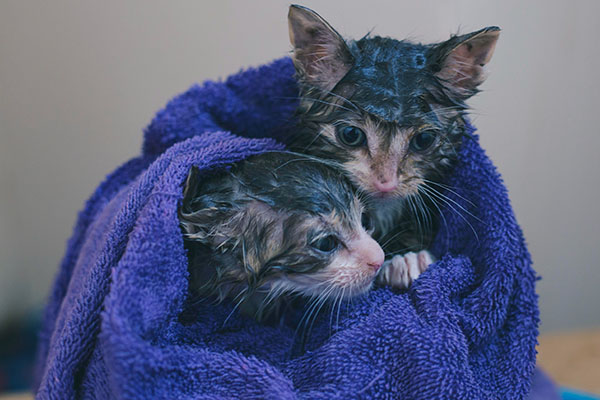
The keys to maintaining good oral health in cats are regular brushings and feeding a healthy diet. Regular brushing with feline toothpaste and toothbrushes can be an effective way to prevent plaque and tartar formation. Brushing should be done numerous times weekly and ideally, daily. There are dental care diets made for cats that can help reduce plaque buildup. They have a larger kibble size and a coarse texture to scrape along the tooth and remove plaque as your cat chews.
You should schedule a professional cat teeth examination and clean with your vet, at least once a year. Professional teeth cleaning often includes the removal of hard-to-reach plaque and tartar that may form underneath your cat's gum line. If your cat has periodontal disease, a complete dental exam under anesthesia is essential to diagnose the cause and the extent of the problem. Once the cause of periodontal and bad breath is diagnosed and controlled, a home cat dental care routine should be established.
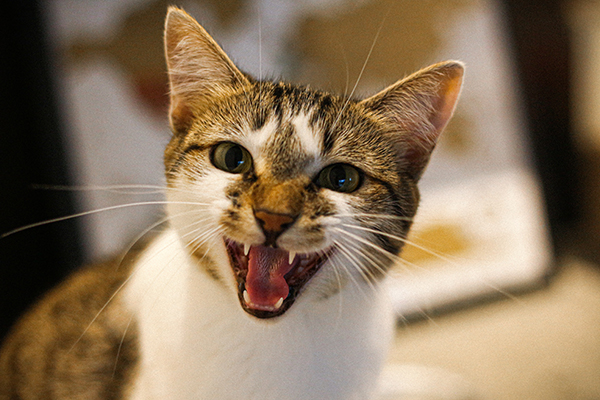
Unless you can easily identify an obvious source of your cat’s foul odor, make an appointment with your vet. Remember that cats are experts at masking illness. By the time you notice any signs of illness, things might be very serious. Some medical conditions in cats can produce persistent strange odors. Be sure to contact your vet if the unusual odor is not going away. The vet will start with a comprehensive health history and a physical examination. They should be able to tell you where the foul smell is coming from and what needs to be done next to treat it.
Feed your feline companion high-quality cat food. Healthy insides equal a better-smelling cat. Better digestion in cats can reduce gas and help maintain healthy skin, fur, teeth, and gums. Feeding your kitty a vet-approved oral care cat food with tartar-reducing ingredients is a simple and effective option for cats with dental problems.
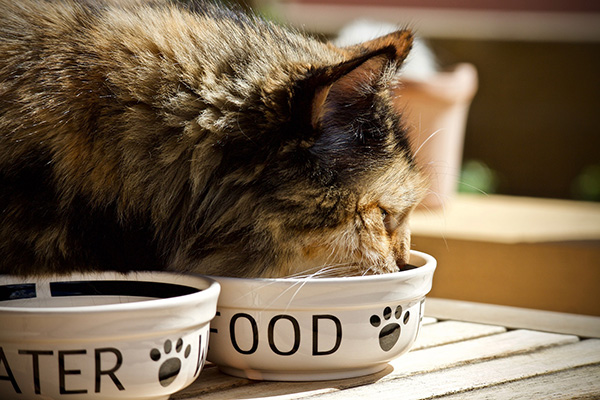
Your cat's smell can be much worse if your kitty isn't cleaned properly or has certain health issues. Taking care of your cat's hygiene is essential for preventing them from smelling bad. The factors that determine how much your cat smells after going outside could be medical, dietary, or just how well you care for them. So, it’s related to their overall health and how well their owner takes care of them. Good luck and happy petting! Or choose one automatic cat feeder and water fountain for your furry friend!
Popular Post

Why Does My Cat Cough After Drinking Water? 8 Potential Reasons
Mar 13, 2023
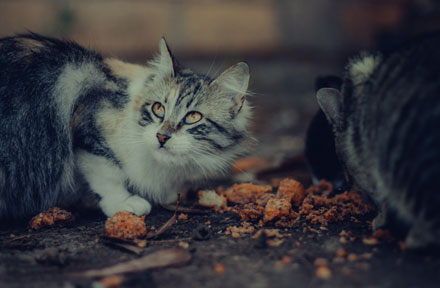
My Cat Only Eats A Little at A Time - What to Do?
Feb 27, 2023

What to Feed a Sick Dog With No Appetite? [2024 Guide]
May 16, 2023

Why Is My Dog Being Destructive All of A Sudden?
Feb 04, 2023
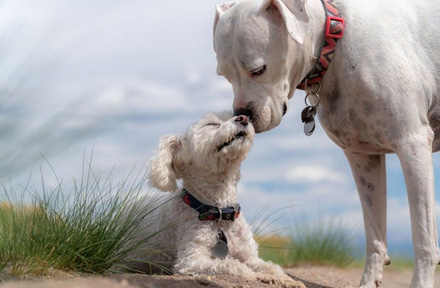
Do Puppies Miss Their Moms
Feb 11, 2023
Copyright © 2024 WOPET. All Rights Reserved.